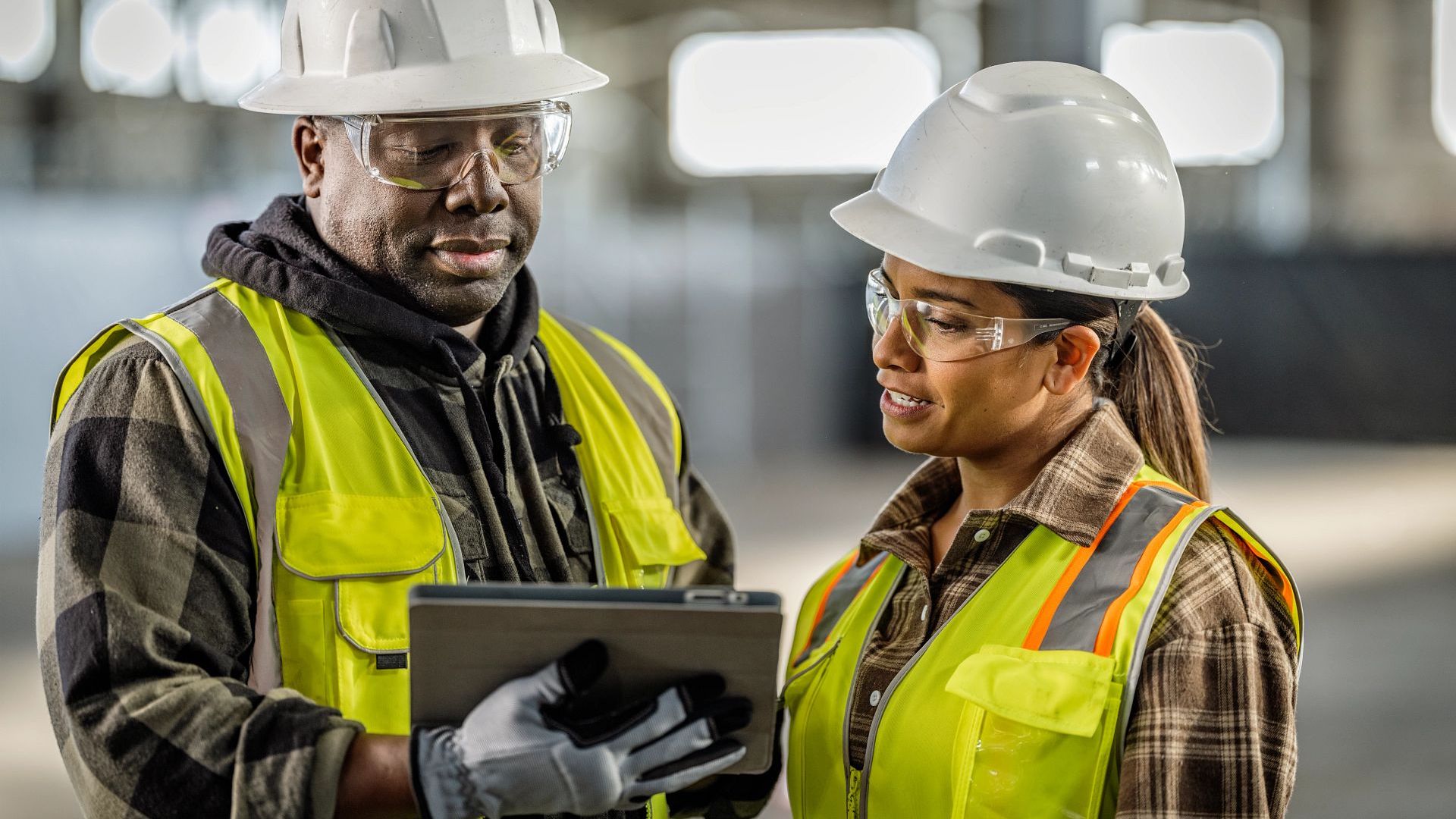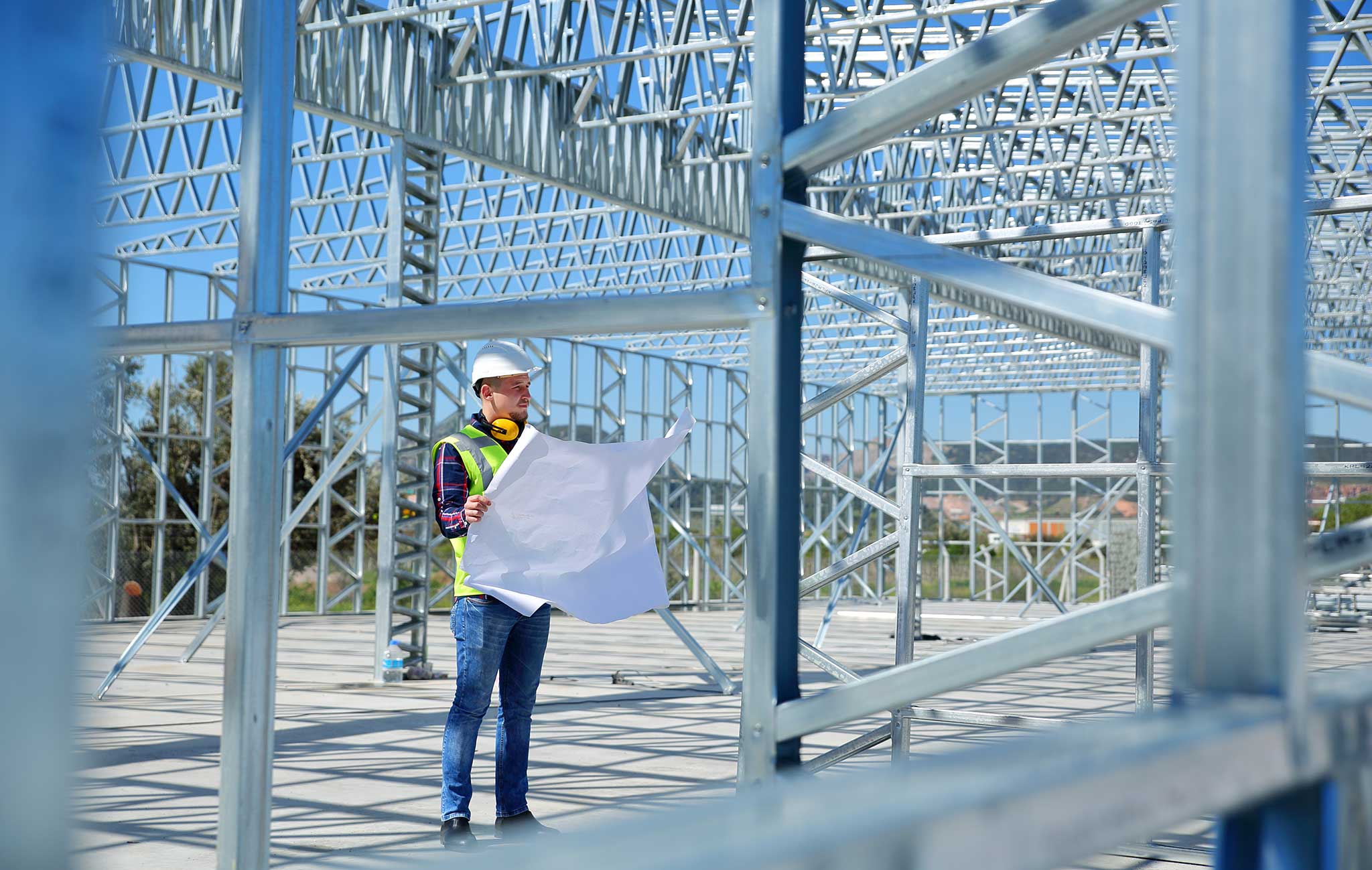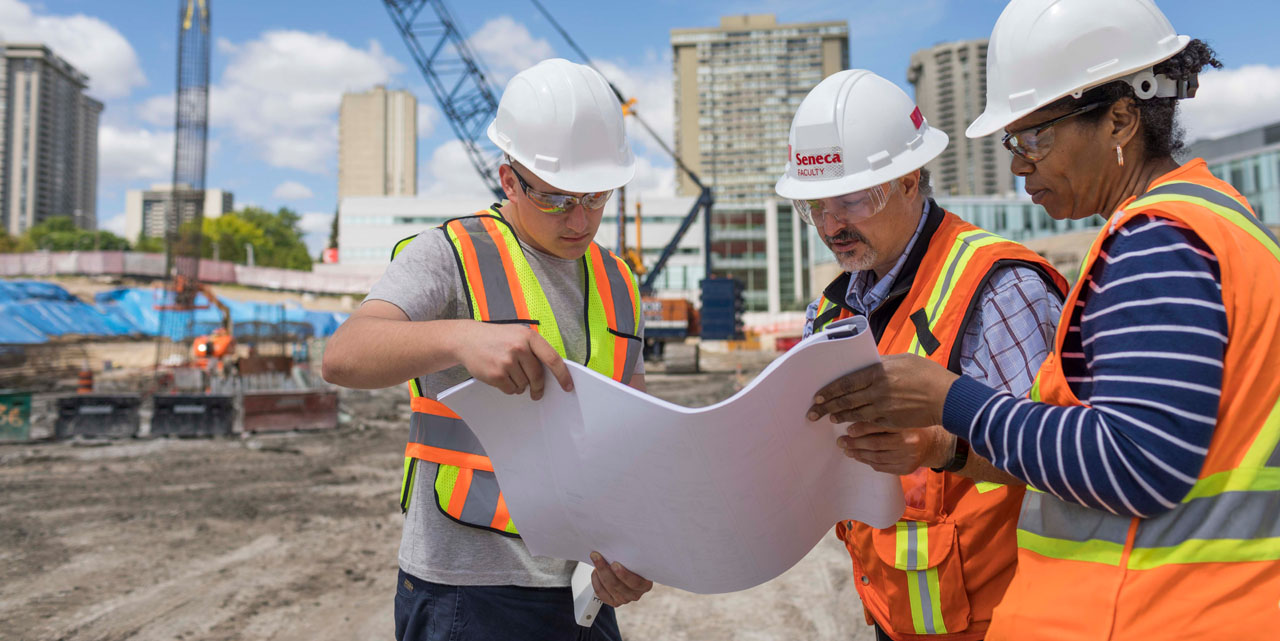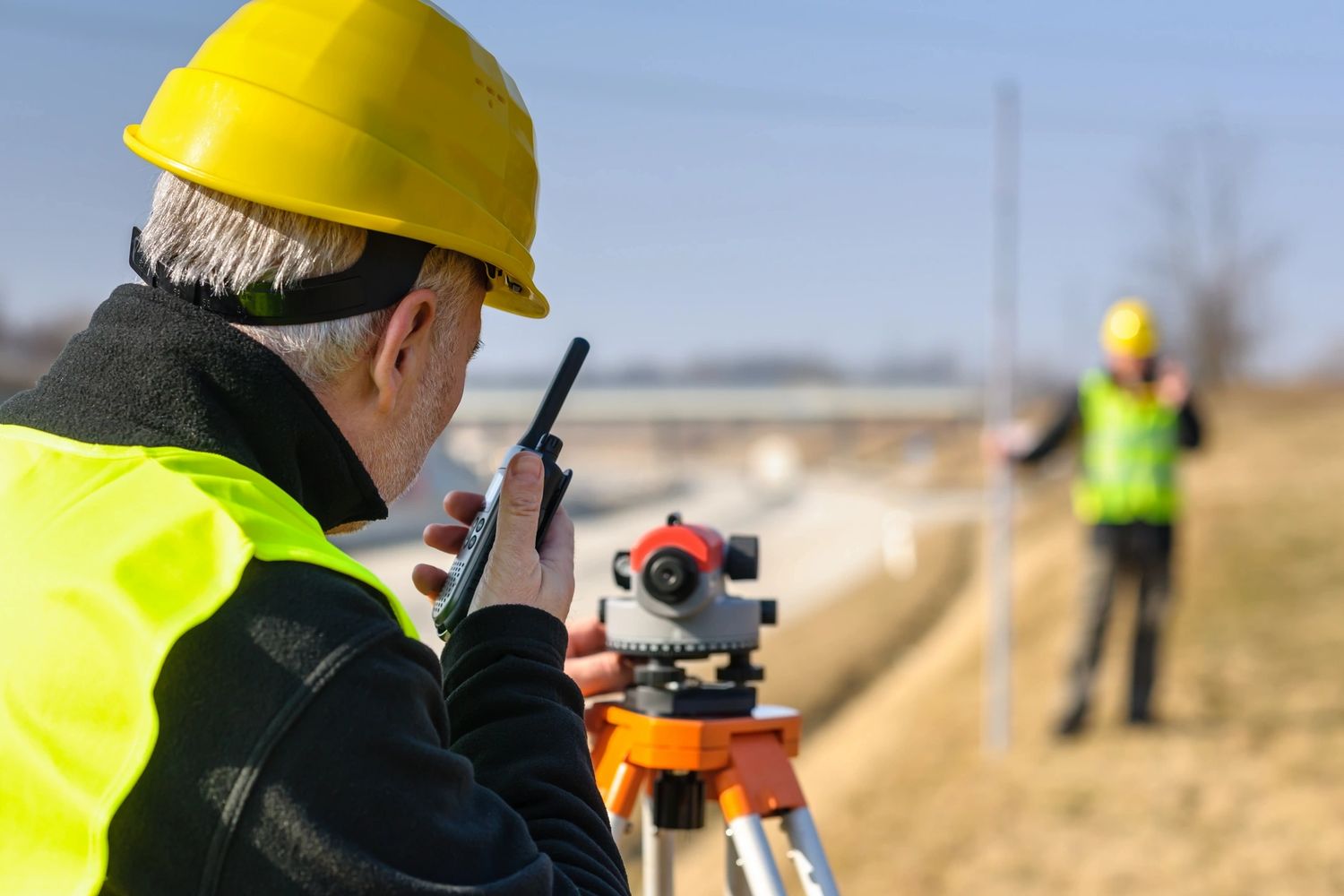Home>diy>Building & Construction>What Is A Construction Project Engineer


Building & Construction
What Is A Construction Project Engineer
Modified: October 21, 2024
Learn about the role and responsibilities of a Construction Project Engineer in the building construction industry. Find out how they manage projects and ensure smooth operations.
(Many of the links in this article redirect to a specific reviewed product. Your purchase of these products through affiliate links helps to generate commission for Storables.com, at no extra cost. Learn more)
Introduction
In the world of construction, a successful project relies on the expertise and coordination of various professionals. One key player in this industry is the Construction Project Engineer. But what exactly does a Construction Project Engineer do? In this article, we will delve into the role of a Construction Project Engineer, exploring their duties, skills, qualifications, and the opportunities and challenges they face in their field.
A Construction Project Engineer is a vital member of a construction project team. They work closely with architects, contractors, and other stakeholders to ensure the successful completion of a construction project. From overseeing the planning and design phase to managing the construction process and ensuring quality control, a Construction Project Engineer plays a crucial role in every stage of a project.
With their deep knowledge of building construction, materials, and techniques, Construction Project Engineers contribute to the efficient and cost-effective execution of projects. They are responsible for coordinating the efforts of different specialists, ensuring compliance with building codes and regulations, and addressing any technical challenges that may arise during construction.
Effective communication and collaboration skills are essential for a successful Construction Project Engineer. They must be able to effectively communicate with stakeholders, architects, subcontractors, and workers on the construction site. Additionally, they must be adept at problem-solving, resource management, and decision-making, as they will often need to address unforeseen issues and make quick decisions to keep the project on track.
Furthermore, staying up to date with the latest advancements in construction technology and sustainability practices is vital for a Construction Project Engineer. They need to be knowledgeable about environmentally-friendly materials, energy-efficient systems, and the integration of smart technology in construction projects.
In the next sections of this article, we will explore in detail the duties and responsibilities, skills and qualifications, education and training required, job outlook and salary prospects, as well as the challenges and opportunities that await Construction Project Engineers in this dynamic and evolving industry.
Key Takeaways:
- Construction Project Engineers are essential for successful construction projects, overseeing planning, coordination, and problem-solving with technical expertise, communication skills, and adaptability.
- Promising job outlook and opportunities for growth in the dynamic construction industry make the role of Construction Project Engineer both challenging and rewarding, requiring continual learning and embracing new technologies.
Definition of a Construction Project Engineer
A Construction Project Engineer is a professional who specializes in managing and overseeing construction projects from inception to completion. They are responsible for ensuring that projects are executed according to plans, specifications, and budget constraints.
A Construction Project Engineer acts as a liaison between the project owner, design team, and construction team. They play a critical role in coordinating and supervising all aspects of the construction process, including procurement of materials, scheduling, quality control, and safety compliance.
One of the primary responsibilities of a Construction Project Engineer is to develop a comprehensive project plan. This involves creating detailed schedules, cost estimates, and construction methods. They work closely with architects and engineers to review design drawings, identify potential issues, and develop solutions to achieve the project objectives.
During the construction phase, the Construction Project Engineer oversees the implementation of the project plan. They monitor the progress of construction activities, ensure adherence to building codes and regulations, and manage any changes or modifications that may arise during the course of the project. They also conduct regular site visits to assess the quality of workmanship, identify any deficiencies, and address construction-related issues.
Effective communication and leadership skills are vital for a Construction Project Engineer. They need to collaborate with various stakeholders, including architects, contractors, subcontractors, and suppliers, to ensure smooth project execution. They must also provide clear instructions and guidance to the construction team, addressing any concerns or conflicts that may arise during the project.
The role of a Construction Project Engineer requires a strong technical background in construction engineering and a thorough understanding of construction methods, materials, and techniques. They must stay updated with industry trends, new technologies, and best practices to ensure the successful completion of projects.
Overall, a Construction Project Engineer is the driving force behind the successful delivery of a construction project. Their expertise and attention to detail are crucial in ensuring that projects are completed on time, within budget, and with utmost quality and client satisfaction.
Duties and Responsibilities
A Construction Project Engineer has a wide range of duties and responsibilities throughout the entire construction process. They play a pivotal role in ensuring the successful execution of construction projects. Let’s take a closer look at some of the key duties and responsibilities of a Construction Project Engineer:
- Project Planning: A Construction Project Engineer is involved in the initial stages of a project, collaborating with the design team to create a comprehensive project plan. This includes developing project schedules, cost estimates, and construction methods. They ensure that the project objectives are clearly defined and that the necessary resources are allocated.
- Coordination and Communication: Throughout the construction process, a Construction Project Engineer acts as a central point of contact, coordinating efforts between the project owner, architects, engineers, subcontractors, and vendors. They ensure that everyone is informed about project progress, changes, and milestones. Effective communication is essential to avoid delays, conflicts, and miscommunication.
- Project Documentation: A Construction Project Engineer is responsible for maintaining accurate and up-to-date project documentation. This includes creating and updating project plans, specifications, contracts, change orders, and progress reports. They ensure that all documentation is organized and easily accessible to all stakeholders.
- Quality Control and Assurance: Ensuring quality and compliance with construction standards is a crucial responsibility of a Construction Project Engineer. They conduct regular site inspections to monitor the quality of workmanship and identify any deficiencies. They also ensure that all construction activities adhere to building codes and regulations.
- Scheduling and Resource Management: Construction projects are time-sensitive, and a Construction Project Engineer is responsible for developing and managing project schedules. They ensure that construction activities are properly sequenced and that resources, including labor, materials, and equipment, are scheduled and managed efficiently to meet project deadlines.
- Safety Compliance: A Construction Project Engineer plays a vital role in promoting a safe work environment. They monitor and enforce safety regulations and protocols to prevent accidents and injuries on the construction site. They also conduct safety training and ensure that all workers adhere to safety procedures.
- Problem-Solving and Conflict Resolution: Construction projects often encounter unforeseen challenges and conflicts. A Construction Project Engineer must be capable of quickly assessing and resolving problems that arise during the construction process. They work closely with the project team to find practical solutions and mitigate any potential delays or disruptions.
These are just a few of the many duties and responsibilities that a Construction Project Engineer undertakes. They are crucial for the smooth execution and successful completion of construction projects. A Construction Project Engineer must possess excellent organizational, communication, and problem-solving skills to effectively handle the multitude of responsibilities in their role.
Skills and Qualifications
A successful Construction Project Engineer possesses a unique set of skills and qualifications that enable them to effectively manage construction projects. In addition to a strong technical background in construction engineering, there are several key skills and qualifications that are essential for this role:
- Technical Expertise: A Construction Project Engineer must have a solid understanding of construction methods, materials, and techniques. They need to be well-versed in reading architectural and engineering drawings, as well as understanding building codes and regulations. Knowledge of construction software and technology tools is also crucial for efficient project management.
- Project Management: Strong project management skills are vital for a Construction Project Engineer. They need to be skilled in planning, organizing, and coordinating multiple tasks and resources simultaneously. They must have the ability to create detailed project schedules, manage budgets, and assess project risks. Effective time management and the ability to prioritize tasks are essential.
- Communication and Collaboration: Excellent communication skills, both verbal and written, are critical for a Construction Project Engineer. They must be able to communicate effectively with various stakeholders, including project owners, architects, engineers, subcontractors, and workers. They should be adept at conveying complex technical information in a clear and concise manner. Collaboration skills are also vital, as they need to work closely with diverse teams and handle conflicts or issues that may arise during the project.
- Problem-Solving: Construction projects often present unexpected challenges and obstacles. A Construction Project Engineer must have strong problem-solving skills to identify issues quickly and develop practical solutions. They need to think critically, analyze data, and make informed decisions to keep the project on track.
- Leadership: Leadership skills are essential for a Construction Project Engineer to effectively lead and motivate the project team. They must be able to delegate tasks, provide clear instructions, and inspire team members to achieve project goals. They should be skilled at managing conflicts and resolving issues in a constructive and diplomatic manner.
- Attention to Detail: Construction projects require meticulous attention to detail to ensure accuracy and quality. A Construction Project Engineer must have a keen eye for detail to review plans, specifications, and contracts thoroughly. They need to ensure that all construction activities comply with regulations and meet project requirements.
- Adaptability: The construction industry is dynamic and ever-changing. A Construction Project Engineer must demonstrate adaptability and the ability to thrive in a fast-paced and unpredictable environment. They should be flexible and able to adjust plans and strategies as project circumstances evolve.
In terms of qualifications, a Construction Project Engineer typically holds a bachelor’s degree in civil engineering, construction management, or a related field. Professional certifications, such as Certified Construction Manager (CCM) or Project Management Professional (PMP), can add credibility to their resume.
Overall, a combination of technical expertise, strong project management skills, effective communication, and leadership abilities are the key skills and qualifications that make a Construction Project Engineer successful in their role. Continual learning and staying updated with industry trends and advancements are also crucial for professional growth in this field.
A construction project engineer is responsible for coordinating and managing various aspects of a construction project, including scheduling, budgeting, and ensuring compliance with regulations and safety standards. They play a crucial role in ensuring the successful completion of a construction project.
Education and Training
Education and training play a crucial role in preparing individuals for a career as a Construction Project Engineer. While the specific requirements may vary depending on the company and project, there are some common educational paths and training opportunities to consider.
Typically, a Construction Project Engineer holds at least a bachelor’s degree in civil engineering, construction management, or a related field. These degree programs provide a solid foundation in engineering principles, construction methods, and project management principles. Students learn about structural analysis, construction materials, cost estimation, and scheduling. They also gain a deep understanding of building codes and regulations.
In addition to a bachelor’s degree, some professionals choose to pursue a master’s degree in construction management. This advanced degree provides a more comprehensive understanding of project delivery methods, contracts, risk management, and advanced construction techniques. It can open up opportunities for senior-level roles in project management.
While formal education is crucial, hands-on experience is equally important in the construction industry. Many aspiring Construction Project Engineers gain practical experience through internships or cooperative education programs while pursuing their degrees. These opportunities allow them to work on real construction projects, gaining insight into the day-to-day operations and challenges faced in the field. Practical experience enhances their understanding of construction processes, project coordination, and on-site management.
Another avenue for education and training is through professional certifications. Several organizations offer certifications specifically tailored to construction project management, such as the Certified Construction Manager (CCM) certification provided by the Construction Management Association of America (CMAA). This certification validates the Construction Project Engineer’s knowledge and proficiency in project planning, design, construction, and closeout phases. Obtaining professional certifications can enhance career prospects and demonstrate a commitment to professional development.
Continual learning and staying updated with industry trends and advancements are crucial for Construction Project Engineers. They can achieve this through attending workshops, seminars, and conferences focused on construction project management. These events provide opportunities to network with industry professionals, learn about emerging technologies, and gain insights from experienced practitioners.
In summary, a bachelor’s degree in civil engineering, construction management, or a related field is typically required to pursue a career as a Construction Project Engineer. Hands-on experience through internships or cooperative education programs is invaluable. Professional certifications and continuing education opportunities enhance skill sets and help Construction Project Engineers stay current with industry practices. By combining education, practical experience, and ongoing learning, individuals can develop the necessary knowledge and skills to thrive in this demanding and rewarding profession.
Read more: What Does A Construction Engineer Do?
Job Outlook and Salary
The job outlook for Construction Project Engineers is promising, driven by the continuous demand for infrastructure development and construction projects. As the global population grows and urban areas expand, the need for skilled professionals to manage construction projects is expected to increase. The construction industry offers numerous job opportunities and career advancement prospects for Construction Project Engineers.
According to the U.S. Bureau of Labor Statistics, the employment of construction managers, which includes Construction Project Engineers, is projected to grow by 8% from 2019 to 2029, faster than the average for all occupations. This growth is primarily attributed to the need to replace retiring construction managers and the increasing complexity of construction projects.
Salary levels for Construction Project Engineers can vary depending on factors such as education, experience, location, and the size and complexity of the projects they manage. According to data from Salary.com, the median annual salary for Construction Project Engineers in the United States is around $80,000, with a range typically falling between $70,000 and $95,000.
However, it is important to note that salaries can vary significantly based on regional factors. Construction Project Engineers working in high-cost-of-living areas or on large-scale projects may earn higher salaries, while those in rural or low-cost areas may have lower salary ranges.
Moreover, salaries can also be influenced by the level of experience and expertise that Construction Project Engineers bring to their roles. Those with several years of experience in managing complex projects and a track record of successful project delivery may command higher salaries compared to entry-level or less experienced professionals.
Opportunities for career advancement in the construction industry are plentiful for Construction Project Engineers. With experience and demonstrated competency, they can climb the career ladder to senior project management positions, such as Construction Project Manager or Director of Construction. Some Construction Project Engineers may also choose to start their own construction management or consulting firms, providing services to clients in the industry.
This promising job outlook, coupled with competitive salary prospects and opportunities for growth, makes the role of Construction Project Engineer an attractive career option for individuals interested in the construction field. By continuously honing their skills, staying updated with industry trends, and demonstrating strong leadership and project management capabilities, Construction Project Engineers can position themselves for long-term success in this dynamic and rewarding profession.
Challenges and Opportunities
Like any profession, the role of a Construction Project Engineer comes with its own set of challenges and opportunities. Understanding these factors can better prepare individuals for the demands of the job and enable them to capitalize on the growth prospects in the construction industry.
As a Construction Project Engineer, one of the main challenges is managing the inherent complexity of construction projects. Every project is unique, and each comes with its own set of variables, such as design changes, unexpected site conditions, and weather delays. Construction Project Engineers must be adaptable and skilled at problem-solving to effectively navigate these challenges on a daily basis.
Another challenge is the need for effective communication and collaboration between multiple stakeholders. Construction projects involve a diverse group of individuals, including architects, engineers, subcontractors, suppliers, and regulatory authorities. Construction Project Engineers must possess strong interpersonal skills to foster teamwork, manage conflicts, and keep everyone aligned towards project goals.
Keeping up with emerging technologies and sustainable practices is also a challenge in the construction industry. Construction Project Engineers must stay informed about advancements in building materials, construction methods, and smart technologies. They need to adapt to these new trends and integrate them into their projects to stay competitive and meet the increasing demand for sustainable and energy-efficient construction.
However, with these challenges come numerous opportunities for growth and professional development. The construction industry is continuously evolving, creating opportunities for Construction Project Engineers to expand their skill sets and take on new challenges.
One opportunity lies in specialization. Construction Project Engineers can choose to specialize in specific types of projects, such as residential, commercial, or infrastructure. By becoming experts in a niche area, they can position themselves as valuable assets in the industry and enhance their career opportunities.
Additionally, the increasing recognition of the importance of sustainable construction presents an opportunity for Construction Project Engineers. As the construction industry strives towards more environmentally friendly practices, professionals who possess knowledge and experience in green building and sustainable design will be in high demand.
The digital revolution has also presented opportunities for Construction Project Engineers to leverage technology for improved project management. Construction management software, Building Information Modeling (BIM), and other digital tools can streamline processes, enhance communication, and improve efficiency on construction projects.
Lastly, as the global population continues to grow and urban areas expand, the demand for construction projects is set to increase. This presents a significant opportunity for Construction Project Engineers to take on larger and more complex projects, expanding their professional portfolios and personal growth.
Overall, while the role of a Construction Project Engineer comes with its fair share of challenges, there are ample opportunities for growth and advancement. By staying adaptable, continuously learning, and embracing new technologies and sustainable practices, Construction Project Engineers can thrive in the dynamic and ever-evolving construction industry.
Conclusion
The role of a Construction Project Engineer is vital in the construction industry, as these professionals are responsible for managing and coordinating projects from start to finish. They play a crucial role in ensuring that construction projects are executed efficiently, on time, and within budget. Through their expertise in construction engineering, strong project management skills, and effective communication, Construction Project Engineers facilitate the successful completion of diverse projects.
Throughout this article, we have explored the definition, duties, and responsibilities, skills and qualifications, education and training, job outlook, and challenges and opportunities for Construction Project Engineers. We have seen how they play a vital role in project planning, coordination, and problem-solving, as well as ensuring quality control and compliance with regulations. The skills and qualifications required for this role encompass technical expertise, project management skills, effective communication and collaboration, problem-solving abilities, leadership, attention to detail, and adaptability.
Education and training are crucial for aspiring Construction Project Engineers, typically starting with a bachelor’s degree in civil engineering, construction management, or a related field. Practical experience through internships or cooperative education programs helps individuals gain hands-on experience and understand the intricacies of the construction industry. Continuing education, professional certifications, and staying abreast of industry trends are vital for professional growth and personal development.
The job outlook for Construction Project Engineers is promising, with a projected growth rate higher than the average for all occupations. The construction industry is constantly evolving, presenting numerous opportunities for Construction Project Engineers to contribute their expertise and advance their careers. The challenges they face, including project complexity, effective communication with diverse stakeholders, and staying up to date with emerging technologies and sustainable practices, also present opportunities for personal and professional growth.
In conclusion, the role of a Construction Project Engineer is both demanding and rewarding. Their contributions to the construction industry are invaluable, as they ensure the successful delivery of construction projects, from conceptualization to completion. By continuing to develop their skills, staying adaptable to industry changes, and embracing new technologies, Construction Project Engineers can thrive in this dynamic field and make a lasting impact on the built environment.
Curious about how complex building projects stay on track? Discover the world of construction management, where every detail from planning to execution is meticulously orchestrated. This field goes beyond traditional project coordination, offering a unique blend of strategy, leadership, and problem-solving skills that are crucial in today's fast-paced construction environments. If you're fascinated by the orchestration behind towering skyscrapers and sprawling estates, our next article on construction management is a must-read.
Frequently Asked Questions about What Is A Construction Project Engineer
Was this page helpful?
At Storables.com, we guarantee accurate and reliable information. Our content, validated by Expert Board Contributors, is crafted following stringent Editorial Policies. We're committed to providing you with well-researched, expert-backed insights for all your informational needs.















0 thoughts on “What Is A Construction Project Engineer”